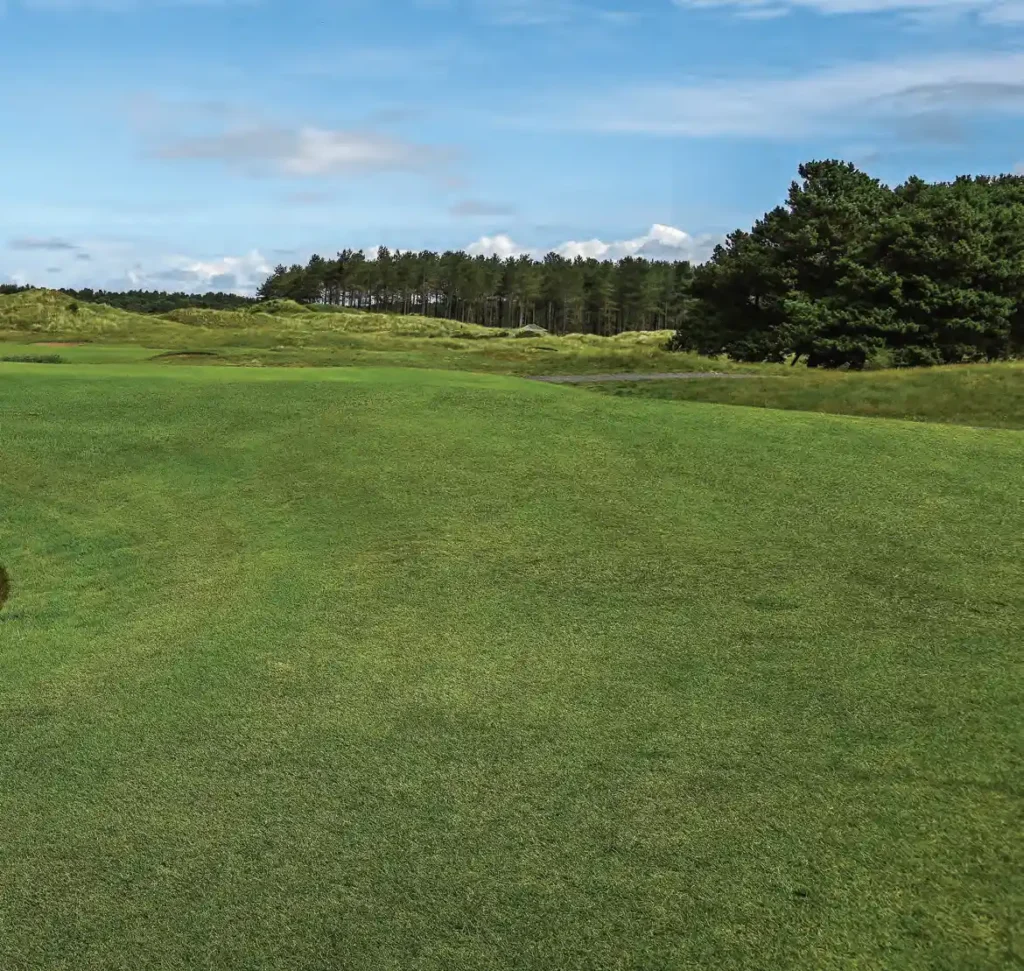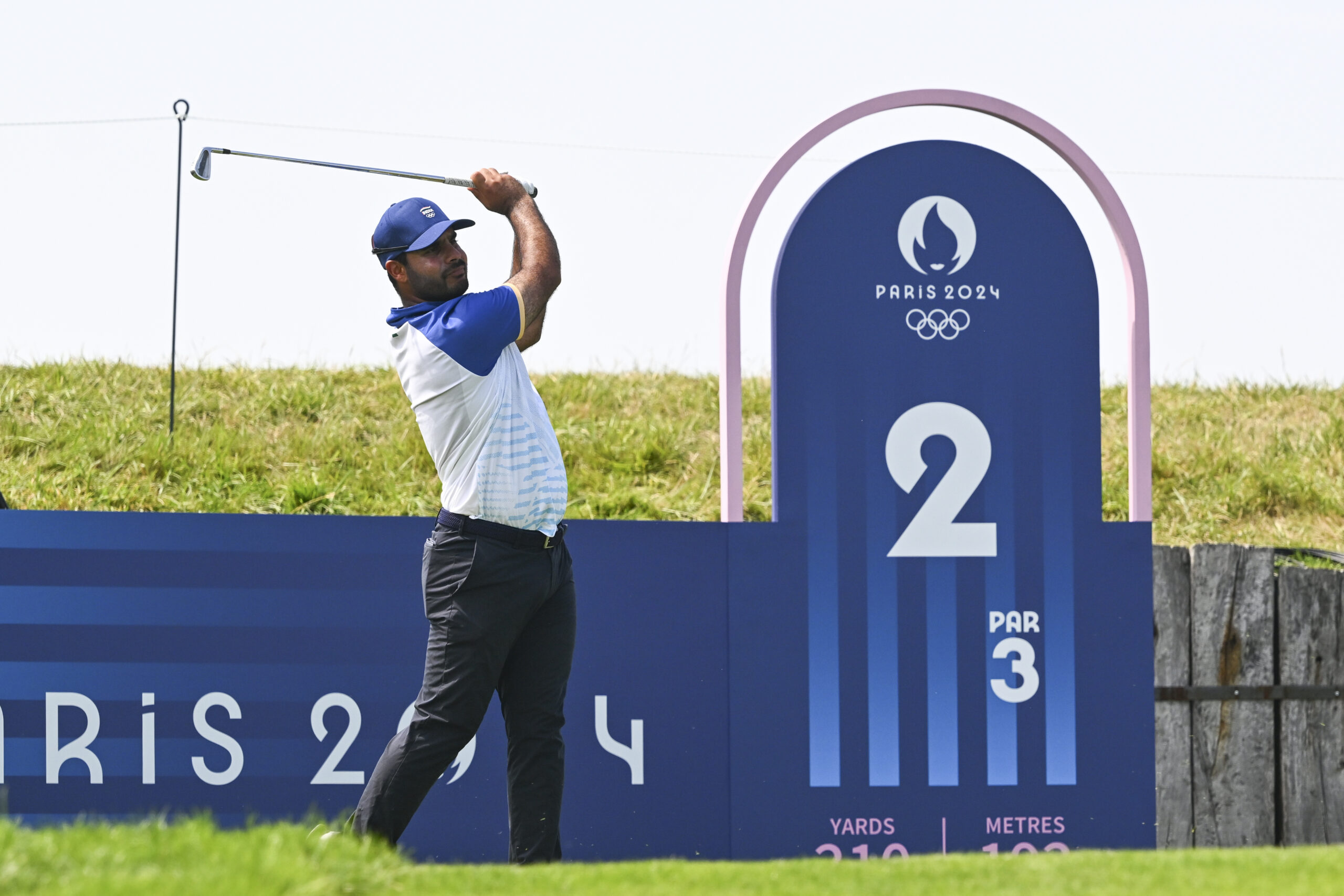CADDIE ON YOUR SHOULDER SHORT BUNKERSHOT TO A TIGHT PIN

Formby’s greenside bunkers are not for the faint-hearted and this one – just to the left of the short par-3 16th – is a super example. My tee shot – so nearly good – has been gathered into a trap that puts my eyes at hole level and leaves me precious little green to work with. This is a situation that needs a calm head and a pragmatic approach. Base your approach on these four factors:
1-Read the lie
The lie of the ball determines your ambition. If it is lying cleanly, the option of floating one out high and leaving it reasonably close to the hole remains open to you. If the ball has settled at all you’ll need to dig it out, and a steeper attack with a delofted face means a lower, hotter flight. If this is your fate, change your goal from a potential up-and-down to making sure you are putting with your third shot… even if that means playing away from the flag.
2-Where’s the Big Error?
Positive visualisation is a key element of any successful shot, and we will come to that. But before then, it will do you no harm to make yourself aware of the one thing you know you must avoid with the shot. On a shot where the pin is barely eight strides away but six of them need to be carried, the answer is plain; getting cute, underhitting and watching the ball roll back into the sand. Adjust your strategy and targeting to take the big error out of play.

3-Add loft
The biggest mistake club golfers make on short bunker shots is failing to accelerate or complete the followthrough. The best way to deal with this is to play the shot with more loft – for example, an opened-up lob wedge as opposed to a square-faced sand wedge. Creating height and not distance, extra loft gives you permission to add speed, and therefore commitment. Of course, this needs some practice to avoid that short big error – but with work, you’ll learn the more aggressive rhythm that yields the best results.
4- Grass cutter
Once you have a clear mental picture of the needed shot and swing, it’s important to rehearse it. That’s not so easy in bunkers, of course, where you can’t strike the sand on the practice swing. So make your swings on the grass outside the bunker. Train the swing pace, length and release you’ve pictured, allowing the sole of the club to engage the ground as it swings through. Make a couple of strong, confident dry runs and you will find it much easier to commit to the shot in the sand.
WHAT WOULD RORY DO?
Picture a tour pro playing your shot. What would the rhythm of their swing look like? How steeply would the ball rise? Where would it land, and how much would it run? Imagining an expert in your position is a solid way to visualise the shot you need to play, and so the swing you need to execute. The only adjustment you’ll need to make is to increase the margin for error. In this case that means picturing the ball landing by the pin, rather than on the
green short of it.













